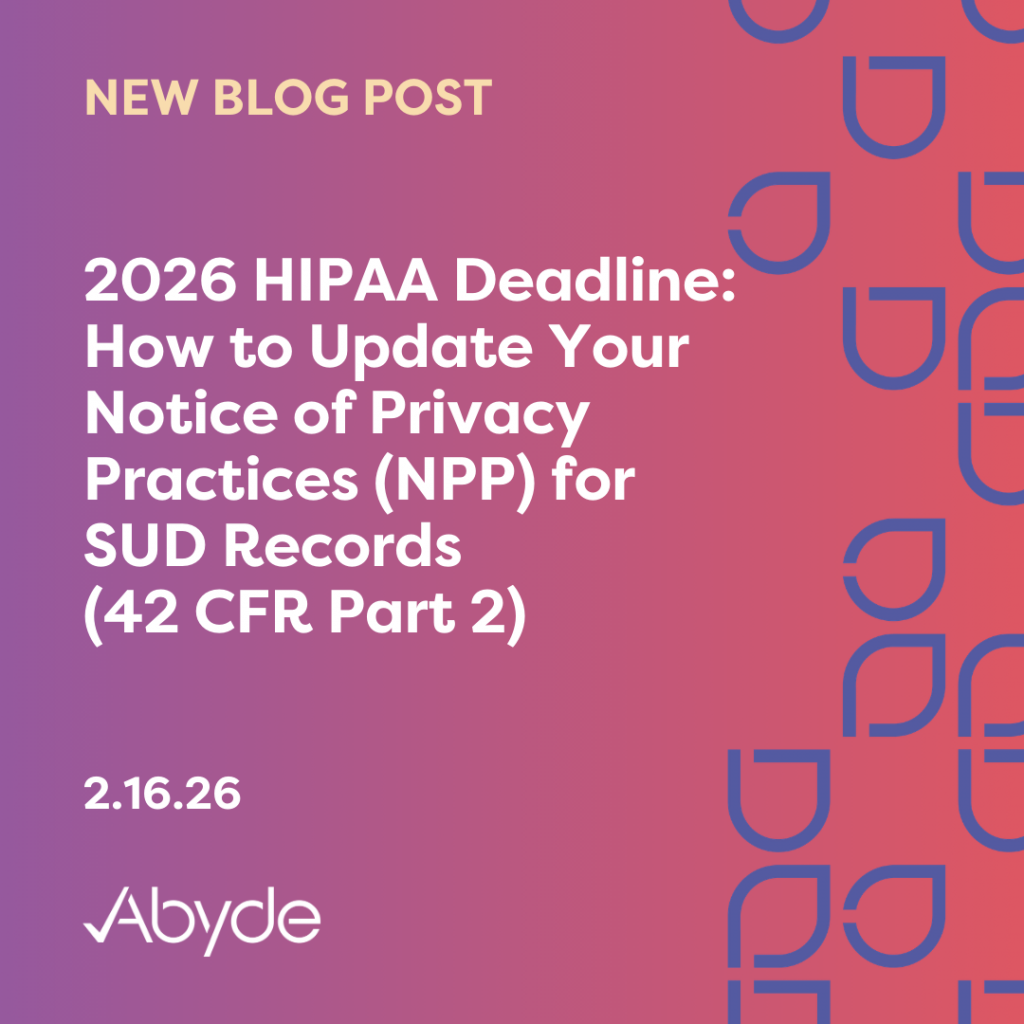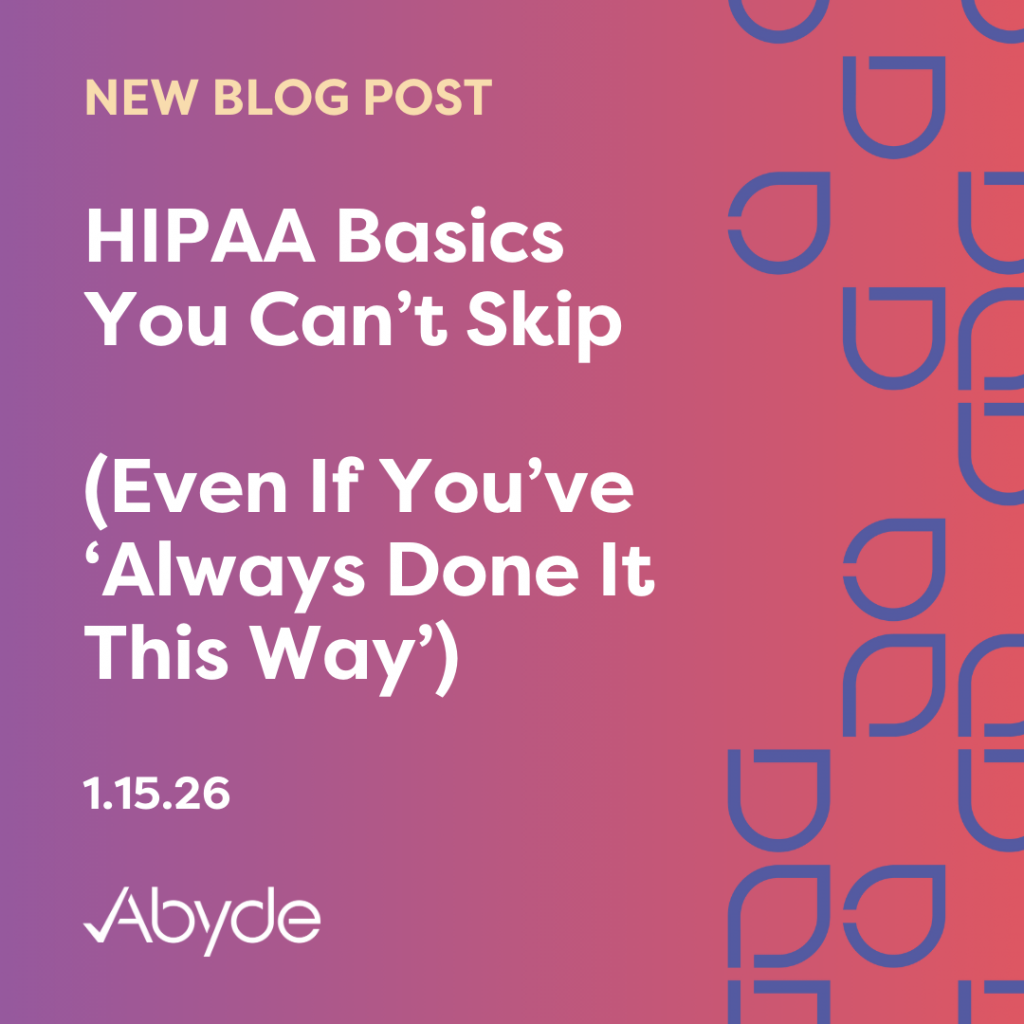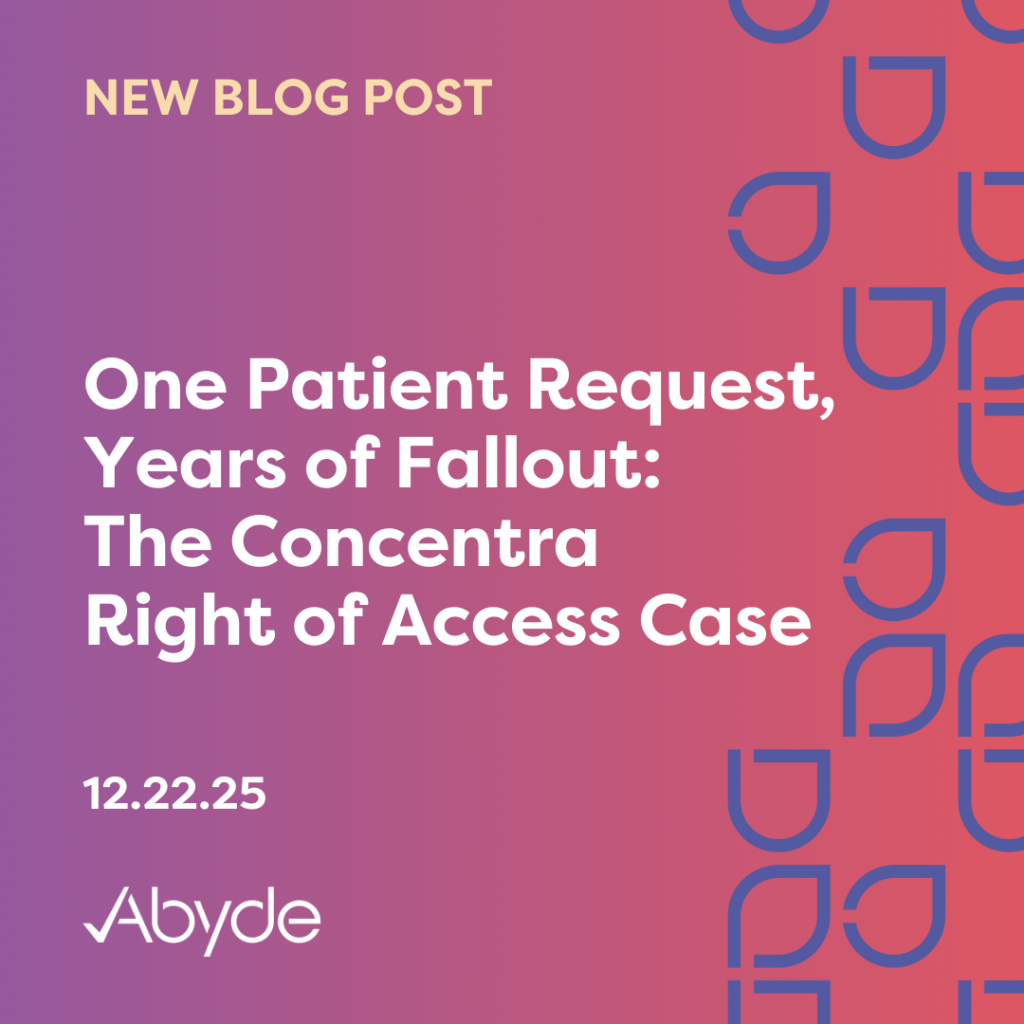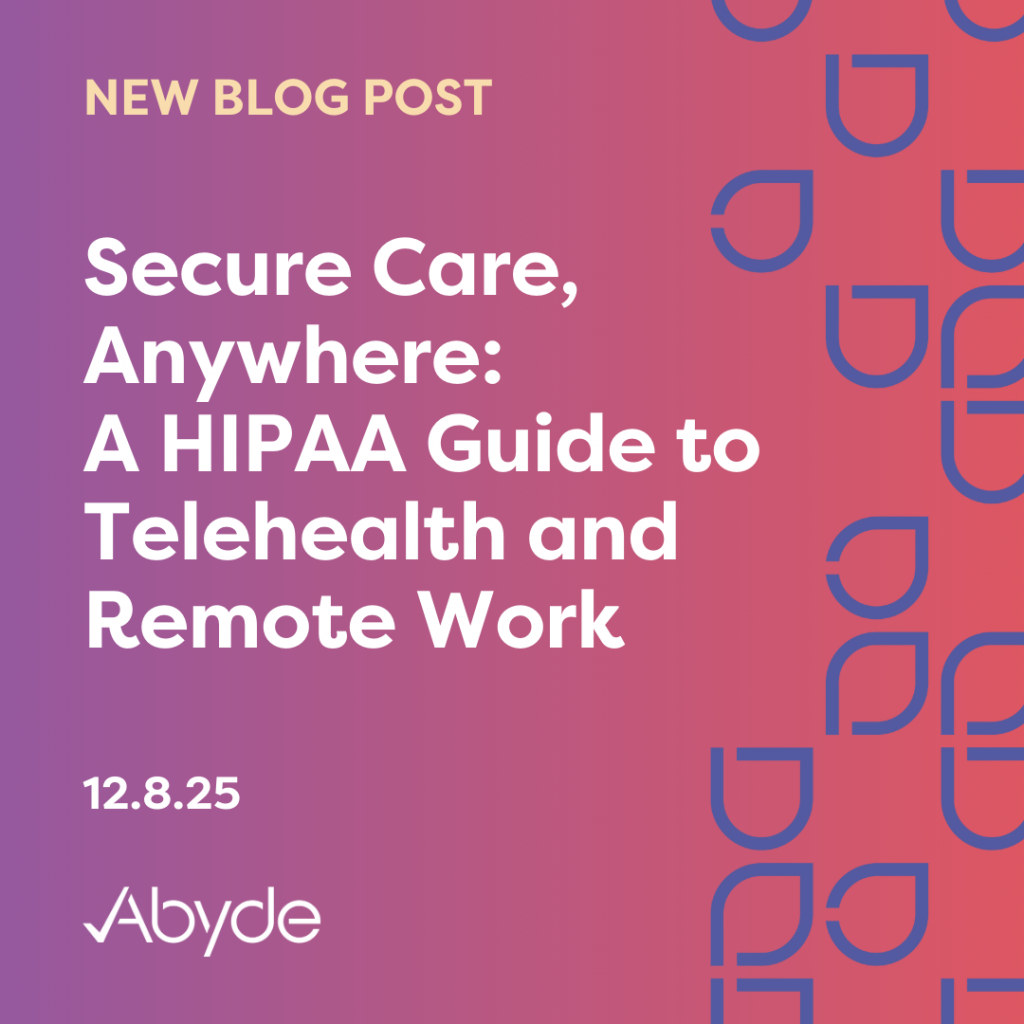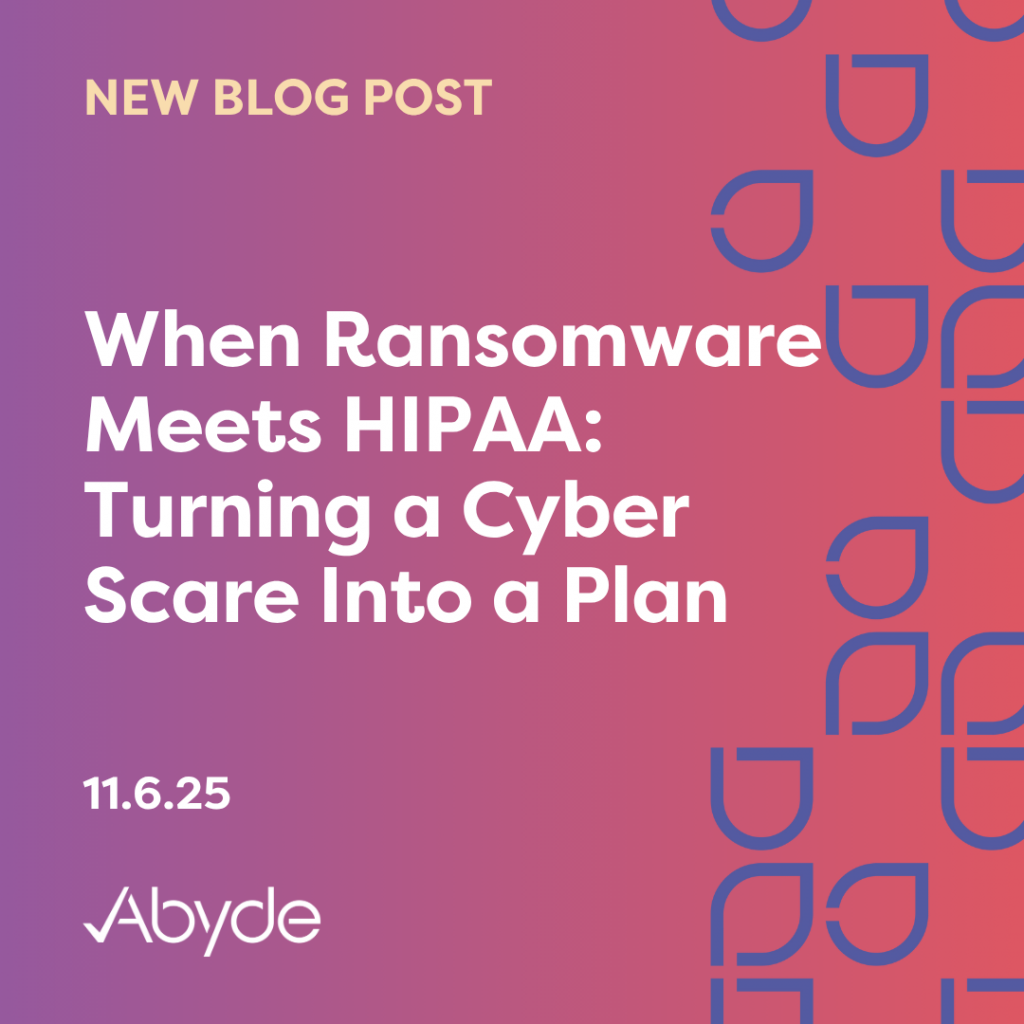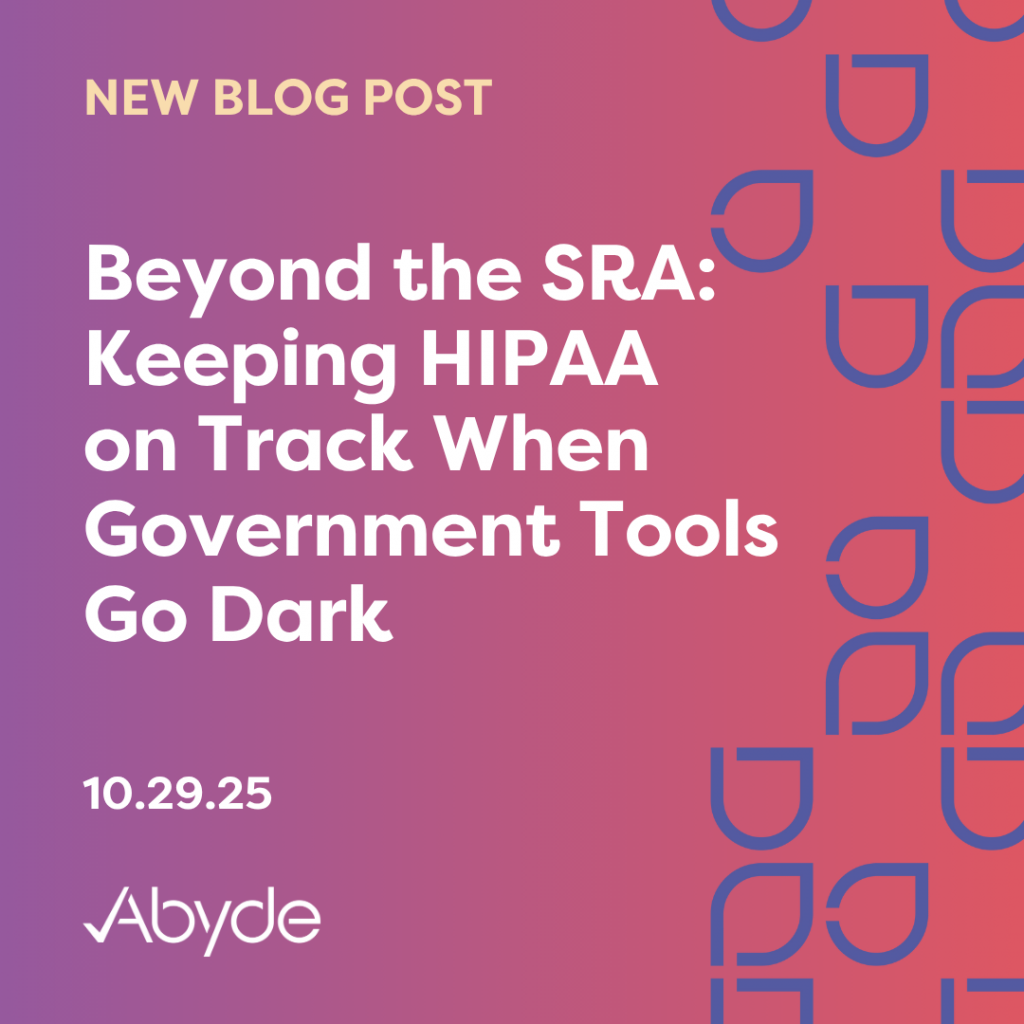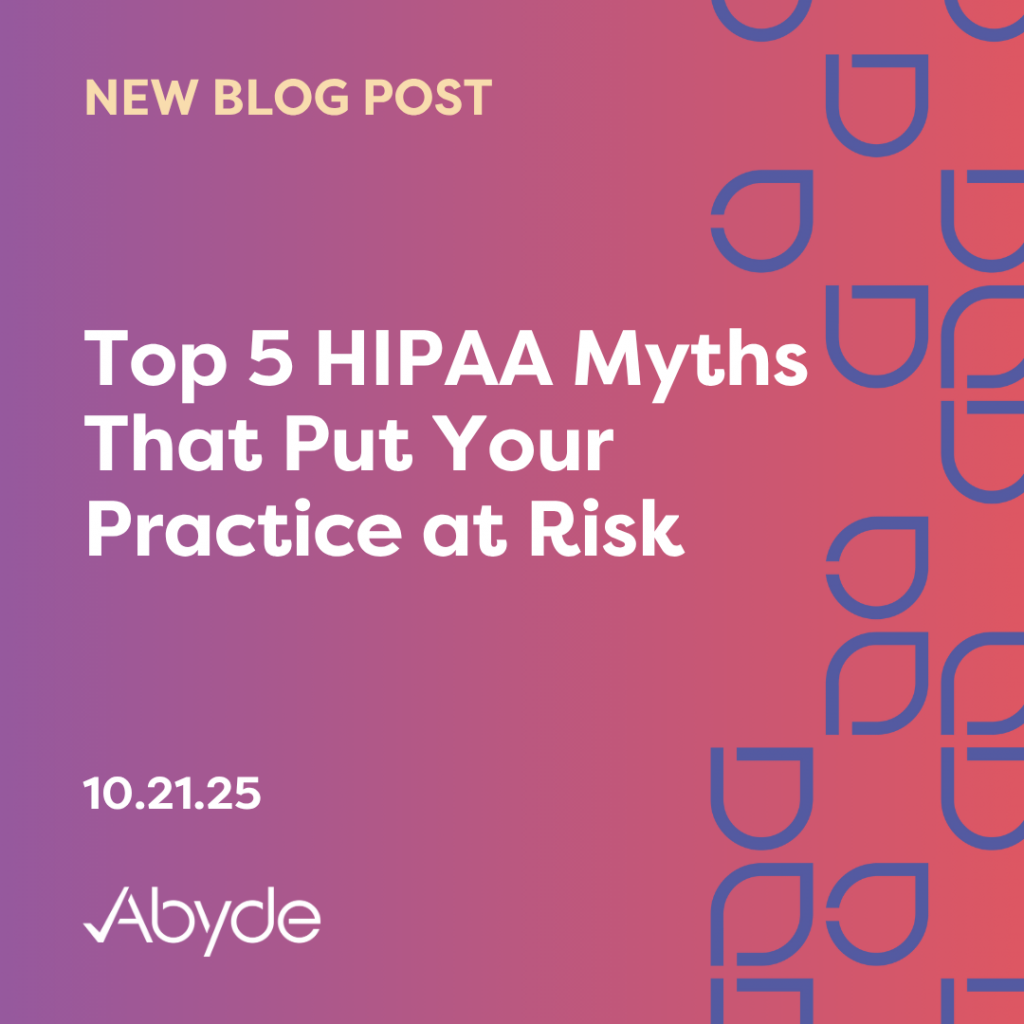February 16, 2026 The latest HIPAA change is the latest updates to the Notice of Privacy Practices (NPP). As of February 16, 2026, the newest version of the NPP must include further information about how Substance Use Disorder (SUD) Protected Health Information (PHI) is handled and secured. While this was initially ruled under the Biden administration in 2024, the updated content has seen significant changes, including the removal of proposed legislation that would treat reproductive healthcare PHI differently. However, while some states still have additional requirements for handling reproductive care PHI, those requirements were struck down at the federal level by a court ruling in 2025. Now that the deadline is here, it’s essential to understand what these changes actually mean for your practice. What’s Actually Changing in the Document? The Final Rule requires practices to update this document for patients (posted on the website and provided in-person) by February 16, 2026. Your practice must also review whether your state has additional legislation regarding reproductive healthcare PHI. Expanded Scope for SUD Information: SUD records must now be included in the NPP for all Covered Entities, regardless of whether the practice focuses specifically on SUD treatment. Standard Disclosure Language: The notice must explicitly state how the practice discloses SUD records for Treatment, Payment, and Healthcare Operations (TPO). Legal Proceeding Protections: The NPP must state that SUD records cannot be disclosed in legal proceedings without specific written patient consent or a formal court order. Single consent for TPO: The rule does allow patients to sign one consent for all future uses/disclosures of TPO. Previously, SUD records were discussed in a separate document for patients to review. Fundraising Opt-Outs: If your practice uses SUD records for fundraising communications, the NPP must clearly provide patients with the opportunity to opt out. For example, if a rehabilitation center is seeking to raise money for a new facility, it cannot reach out to former patients who have clearly opted out. Redisclosure Warning: The notice must highlight that once PHI (including SUD records) is shared with an outside party, it may be subject to redisclosure by the recipient. In other words, once it’s shared, it’s tough to control how it is shared again by third parties. Universal Accessibility: To remain compliant, practices must ensure the NPP is accessible to all patients, which includes providing translated copies. State-Specific Requirements: Depending on your state, additional protections for reproductive health PHI may still be in place. Where do I start? First, ensure your Notice of Privacy Practices (NPP) is already specific to your practice. Your final notice must be specific, include your office address, and provide clear contact information for your Compliance or Privacy Officer. To remain compliant, this notice must also be prominently displayed on your website so patients can easily access and understand their rights. Your NPP should now include a section that addresses these SUD records directly. The federal government provides model language similar to this: When applicable, we may use or disclose 42 CFR Part 2 substance use disorder records for treatment, payment, and health care operations as permitted by law. Part 2 records will not be used or disclosed in legal or administrative proceedings against you without your specific written consent or a court order. Your NPP should now include a section that mentions fundraising as well. The federal government provides model language similar to this: If we were to use or disclose substance use disorder records protected by 42 CFR Part 2 in connection with fundraising, you have the right to opt out of receiving fundraising communications in advance, before any such communications are sent. Simplify Compliance Updating your NPP can feel like just another complicated task on an already full plate. For practices where you’re wearing many hats, finding the resources for a legal deep-dive is tough. The simplest way to handle the February 16, 2026, deadline is to lean on experts. Abyde has already done the heavy lifting, automating the necessary HIPAA and SUD record updates so you can focus on what you do best: take care of patients. Reach out to our team of experts to learn more about HIPAA updates affecting your practice. Disclaimer: This post is for informational purposes only and does not constitute legal advice. Health care privacy laws are subject to frequent change and vary by state. Consult with a qualified health care attorney or compliance officer to ensure your Notice of Privacy Practices meets all current federal and state requirements.
HIPAA Basics You Can’t Skip (Even If You’ve ‘Always Done It This Way’)
January 15, 2026 As your practice shakes off the post-holiday haze, it’s time to go back to basics. Before picking up the pace, it’s worth slowing down to look at the foundations. While your practice might have routine procedures, it’s time to double-check if they’re even compliant. The Training Refresh Staff must complete HIPAA training when joining your practice, but that’s not all. HIPAA requires annual training and updates after policy changes or breaches, and whenever staff review is needed. Long story short, your practice needs a lot of training. When in doubt, provide staff training to ensure they are comfortable and confident in handling Protected Health Information (PHI). Titles Matter Even in a small practice, it’s required to assign a HIPAA Compliance Officer (HCO). We know that ‘wearing many hats’ is the reality of a small team, but designating a clear leader for compliance provides a vital anchor. It ensures your staff knows exactly who to turn to for guidance. If the OCR ever comes knocking, they require a single point of contact to streamline the investigation. Social Media Savviness We hate to break it to you, but your Gen Z receptionist could make your practice viral for all the wrong reasons. Social media can be beneficial for sharing your practice to a larger audience, but your staff needs to handle it very carefully. While it might be fun to partake in the latest TikTok trend, make sure that any PHI cannot be seen in the clips, and do not include a patient in any content unless there is explicit consent to do so. Having a media consent form is key in these situations. Keep it General Alongside social media, Google reviews can be a great way to show you’re listening, but HIPAA changes what you can say. Even if the review is favorable, you cannot identify whether the patient has been in your practice or not. Even if the review details a specific experience at your practice, it’s their choice to disclose this information, and your job, under HIPAA, is not to confirm it. For instance, a good public review would be: Thanks for the kind words! If you have additional feedback, please call us at xxx-xxx-xxxx. If you get a negative review, keep your response brief and offline. First, check for spam or rule violations and report if necessary. Otherwise, don’t clarify details or if they’re a patient. A good response: Thank you for your feedback. We’d like to learn more. Please contact us at xxx-xxx-xxxx. Practices can, and have been, fined for improper Google review responses, so your team must remain calm and neutral online. Lock it Down While it might feel easier for your practice to use a single, shared email to log in and access everything, it’s much safer (and wiser) for every team member to have their own login with role-based permissions. Individual accounts create accountability, keep information organized, and enable the implementation of role-based access. Not everyone in your practice needs access to the same information, and they shouldn’t have it. For example, your receptionist likely doesn’t need access to X-rays or clinical notes, but they do need access to scheduling software. When permissions align with the job, you reduce the risk of accidental exposure and keep sensitive data limited to those who genuinely need it. Individual logins make off-boarding easy. When someone leaves, remove their access immediately without disrupting the team or requiring a shared password change. This small shift greatly boosts compliance and protects patient information. Change Habits Today It’s easy to let compliance fall to the bottom of the to-do list when you’ve “always done it this way”. Thankfully, intelligent software can streamline these requirements for you. With the right platform, you can ensure training is handled correctly, that dynamic policies and procedures are properly formatted for your team, and that you have access to a team of compliance experts when navigating difficult compliance questions. Take the next step: schedule a compliance consultation with our team. We’ll show you exactly how to meet HIPAA requirements, simplify your processes, and protect your practice with confidence. Contact us today to get started.
End of Year HIPAA Checklist: 5 Things to Wrap Up Before 2026
December 30, 2025 You may be done wrapping gifts, but year-end is the perfect time to wrap up compliance loose ends and start the new year with everything tied up in a neat bow. As your office returns to normal after a post-holiday haze, use the (hopefully) quiet time to get your compliance program in order. Here’s your practice’s end-of-year HIPAA checklist to help you confirm the essentials are handled and documented before 2026 begins. Confirm HIPAA Training is Complete (and Documented) HIPAA training is required yearly and for all new staff members upon joining the team. As the year comes to a close, it’s strongly recommended to review all training documentation. This should include confirming that any new hires have received HIPAA onboarding training, verifying that all current staff completed training during the calendar year, and ensuring that your practice has the necessary documentation, such as training certificates, to prove it. Maintaining records of your training is crucial. Not only does it keep your documentation organized, but the Office for Civil Rights (OCR) will require this proof if your practice is ever investigated. Make sure your Right of Access Process is Crystal Clear to all Staff While patient record requests might seem simple, they’re one of the most common HIPAA violations. In fact, the latest HIPAA fine, exceeding $100,000, was issued due to one patient’s complaint after their records weren’t properly released. Ensure your staff is aware of the process for releasing patient records and the strict timelines your practice must follow. On a federal level, records must be released within 30 days; however, depending on the state, they may be released even sooner. Review your Business Associate Agreements (BAAs) This is one of the most common gaps across practices: vendors have access to PHI, but the paperwork isn’t complete or updated. The vendors, or Business Associates (BAs), with which your practice works must also follow HIPAA requirements. To protect your practice, ensure your practice has a Business Associate Agreement (BAA) in place with any vendors you work with. A BAA establishes legal liability if your BA experiences a breach. It also outlines the steps your vendor must take to maintain the security of Protected Health Information (PHI) and how to respond to a data breach. Confirm your Security Risk Analysis (SRA) is Current The Security Risk Analysis (SRA) is at the foundation of a compliant practice. The SRA is a comprehensive review of all physical, technical, and administrative safeguards your practice has in place. For example, the SRA would review how your practice checks patients, as well as the operating system used on the computers in your practice. Take this downtime to review your SRA. The OCR expects this to be an active, living document, not something that sits in a folder gathering dust. Ensure you have identified any new risks, such as new software implementations or changes in office layout, and have updated your SRA accordingly. Update Your Policies and Procedures Operating on “outdated instructions” is a major liability. HIPAA requires that your written policies and procedures accurately reflect your practice’s current daily operations. If you’ve implemented new technology in your practice or changed any internal workflows, now is the time to ensure that the policies and procedures show that. While policies and procedures might feel like just paperwork, alongside thorough training, they are the primary tools for ensuring your staff knows exactly how to handle and protect patient data. Streamline Compliance in 2026 If this End of Year HIPAA checklist feels overwhelming to manage while running a busy practice, you’re not alone. The good news? You don’t have to do it manually. Smart compliance software is designed to eliminate the guesswork from the process. From dynamically generating your policies and procedures to automating employee training and guiding you through your SRA, turning hours of “paperwork” into a few simple clicks. Meet with a compliance expert today to see how you can streamline compliance in 2026.
One Patient Request, Years of Fallout: The Concentra Right of Access Case
December 22, 2025 Well, the Office for Civil Rights (OCR) is back, folks! After a historic government shutdown, the OCR has announced its first fine. The recipient of the latest fine is Concentra, Inc., a Texas-based enterprise healthcare provider. While this health organization might have numerous locations, the root of this federal fine and years of legal battles stems from one patient complaint to the OCR. With the 21st fine of the year, we’re taking it back to the basics: Patient Right of Access. What Happened? In February 2018, a patient requested a copy of their medical and billing records from Concentra’s Peoria, Arizona, location. While a Concentra employee forwarded the request to the billing office, the patient did not receive their medical records in a timely manner. The patient sent several requests throughout the year. In October 2018, Concentra’s Business Associate issued an invoice to the patient for $82.57 for the requested medical records. This amount was disputed. After months of back-and-forth with Concentra, in December 2018, the patient filed a complaint with the OCR regarding how the healthcare provider handled their record request. Finally, in March 2019, over a year after the initial request, Concentra’s Business Associate provided the health records to the patient for an adjusted rate of $6.50. Providing the records was just the beginning for Concentra. In the summer of 2020, the OCR notified the healthcare provider that this case indicated noncompliance with the Privacy Rule and provided Concentra with the opportunity to submit mitigating evidence. Then, in 2021, the OCR proposed to levy a $250,000 penalty. After several more years of legal battles, the OCR settled this case in 2025 with a $112,500 settlement. Patient Right of Access 101 This lengthy chain of events highlights the importance of promptly and thoroughly addressing patient requests. Detailed in the Privacy Rule, patients have the right to access their health records within 30 days from the initial request, known as the Right of Access. This timely access empowers patients to make informed decisions about their healthcare. This 30-day timeline applies on the federal level. Depending on the state, your practice may be required to comply with more stringent timelines, as seen in California. The 30-day timeline is firm, and a practice can only be granted an extension once, for an additional 30 days. In addition to adhering to a 30-day timeline, the fees for copies of records must be reasonable and feasible. The acceptable fee for providing copies of documents is limited to the cost of labor for copying, supplies, postage, and any provided summary. Alternatively, your practice can charge a flat fee of not more than $6.50 instead of calculating these specific costs. Keeping Your Practice Compliant (And Your Patients Happy) While following the Right of Access might seem straightforward, it’s one of the most common HIPAA violations practices make. There have been 50+ HIPAA Right of Access enforcement actions levied by the OCR. With the right compliance program, you can ensure that your staff is aware of all requirements when handling patient requests. Clear policies and engaging training help you respond correctly, on time, and with confidence. Ready to ensure your practice is HIPAA compliant? Schedule a consultation with one of our compliance experts today.
Secure Care, Anywhere: A HIPAA Guide to Telehealth and Remote Work
December 8, 2025 Nearly six years ago, office staff discovered that work from home was a possible model in the healthcare field. Not only did the work move to the house, but digital, at-home healthcare became wildly popular. If part of your team is still working remotely, whether full-time or part-time, remember: HIPAA isn’t only within the four walls of your organization. Here’s the good news: staying HIPAA compliant from a home office isn’t meant to be complicated. With the right tools and game plan, you can keep Protected Health Information (PHI) secure from the comfort of your own home. Lock It Down at Home Remote work doesn’t change the HIPAA baseline. The standard of “minimum necessary” still applies, safeguards still span people, process, and technology, and documentation still matters. Think of compliance like a thermostat you’ve set correctly: once it’s dialed in, it quietly keeps everything in range. First, your staff needs to understand the standard requirements for keeping data secure and be trained on safely accessing PHI remotely. Do your employees know that it’s a big HIPAA no-no to share sensitive patient data with family during casual conversations while working from home? The best way to communicate what to do is through relevant, documented policies, including a remote work policy. It’s essential that work laptops and any devices with access to PHI are encrypted, and that all logins utilize Multi-Factor Authentication (MFA). Encryption and MFA are both additional layers of protection, ensuring that only authorized users can access PHI. Does staff utilize personal devices for work from home? If so, require mobile device management policies, encryption information, and clear off-boarding procedures. Have a lost-device and incident response policy so your team knows exactly who to notify, how to lock or wipe a lost device, and how you’ll assess whether an event rises to the level of a breach. The work station should also include HIPAA-compliant communication through email and phone calls. If you meet with patients through telehealth services, use an encrypted platform and verify the patient’s identity before each session. As your organization ensures that the proper safeguards are in place, Business Associate Agreements (BAAs) must also be signed for any third parties (encryption services, IT providers, HIPAA-compliant platforms) with access to your PHI. BAAs offset the liability if a breach occurs due to your BA’s negligence. The legal document details exactly what each party is responsible for and how to handle any situation. While the legal aspects might feel overwhelming, they are necessary to keep patient data safe. With clear policies, trained people, and the right security controls, remote work and telehealth can be both convenient and compliant. Remote Ready Remote work and telehealth are no longer temporary fixes to the problem of a pandemic; they’re a simple fact of operating today. HIPAA didn’t change with the scenery, but the right tools can. Intelligent software solutions can provide clear policies, thorough training, compliant BAAs, and more. Telehealth and remote work are here to stay. Keep the safeguards in place, and you’ll be compliant wherever you work, even at home. Meet with a compliance expert to learn more about how your remote organization can achieve HIPAA compliance.
So… OSHA Just Walked In: What Happens Next
November 13, 2025 OSHA doesn’t always call ahead. No heads-up. No appointment. Just, “We’re here. Let’s review your documentation and take a look around.” In fact, half the time OSHA investigates a practice, it’s unannounced. Aside from a random investigation, if anyone in your practice issues a complaint about the work environment or if someone is seriously injured, it’s common for OSHA to conduct an investigation. Take a deep breath! With proactive compliance and an understanding of the investigation process, you can pass with flying colors, keeping your staff safe. What’s an OSHA Investigation? OSHA inspections are routine visits to make sure workplaces are following safety rules. OSHA will target high-risk workplaces, like construction, manufacturing, and, you guessed it, healthcare. When work-related illnesses and injuries in the healthcare industry surpass other fields, it’s no wonder that healthcare is a priority for OSHA. The OSHA official will begin with an opening conference to explain their purpose and the scope of their review. After that, they’ll do a walk-through of your practice and look over your documentation to confirm your safety measures are in place. This can include checking for basics like eye wash stations and accessible fire extinguishers. Your OSHA materials, including risk assessments, SDS library, policies, procedures, and other relevant documents, should be organized and easily accessible to staff. The OSHA investigator can and will also interview staff. Like a pop quiz, your staff must be trained and ready to answer any questions at any time about safety precautions. While being quizzed on OSHA training might not be as fun as being on Jeopardy!, being aware and confident of your practice’s proactive compliance will save your practice from ‘doubling down’ on a massive fine. After a review, a closing conference will be held to review results and next steps. So, what’s after an OSHA Investigation? If everything goes well, hopefully it’s nothing! However, OSHA can and will fine practices found with violations. When the minimum cost of a fine is over a thousand dollars, these violations can quickly add up. In fact, depending on the situation, OSHA fines can cost over $160,000 a violation! Additionally, it can become public record that your practice failed an OSHA audit. OSHA will likely place you on a corrective action plan, ensuring your practice takes the necessary precautions to keep your staff safe. How can I get OSHA Compliant Today? OSHA penalties don’t just sting your budget — they can hurt your reputation, too. But the real reason to stay on top of OSHA isn’t the fine, it’s your people. Protecting your team from preventable injuries and exposures should always come first; avoiding penalties is just the nice side effect. While compliance may feel complicated, it doesn’t have to be that way with the right solution. Smart software can analyze your practice’s compliance standings, offer recommendations, dynamically generate documentation, provide thorough training, and more to ensure your staff is safe every day in your office. Schedule a meeting with a compliance expert to learn more about OSHA compliance in your practice.
When Ransomware Meets HIPAA: Turning a Cyber Scare Into a Plan
November 6, 2025 The lights flicker. Your EHR freezes. A skull-and-crossbones pops up with a countdown, and your team can’t access patient charts. Appointments grind to a halt. No, it’s not a scene from a horror movie you watched on Halloween; it’s what a real ransomware attack can look like for a healthcare practice. Ransomware is a growing threat in healthcare because it goes after what you rely on most: access to patient information. Attackers lock you out of your own systems and demand payment, all while putting Protected Health Information (PHI) at risk. The good news? With the proper safeguards, training, and a plan in place, your practice can respond quickly and minimize the damage. What is a Ransomware Attack? Ransomware is malicious software, or malware, that deliberately seizes records in exchange for a payment, usually demanding enormous amounts of money. The Change Healthcare Breach, the most significant HIPAA breach on record, highlighted the devastating scale of these attacks. This single incident impacted nearly 200 million Americans! It involved a $22 million bitcoin ransom paid to the hackers after the initial attack, as well as billions of dollars in downtime and recovery. That’s how serious these incidents can get. When PHI is worth 10 to 20 times more than a credit card on the black market, it puts healthcare providers in the crosshairs of malicious bad actors. A credit card is like having a single slice of pizza, and who stops at one? A patient’s PHI gives hackers the whole pie. Instead of cheesy goodness, it’s a compliance nightmare for your practice. Ransomware attacks have increased rapidly in the healthcare sector in recent years, with a 264% rise in large breaches caused by ransomware crimes. The big problem is that these threats are Pandora’s box, incredibly difficult to contain once they’ve begun. How can I stop a Ransomware Attack? You can’t guarantee it will never happen, but you can take the proper steps to minimize risks significantly. First, ensure staff are adequately trained on email safety. We hate to break it to you, but that “Free vacation when you send an Apple gift card!” email is probably too good to be true. Most attacks start with a suspicious email that’s opened by unknowing employees. Ensure staff are aware of common phishing signs and know how to report suspicious activity correctly. Also make sure that all proper technical safeguards, such as firewalls and encryption, are current and fully operational to secure patient data. Implement multi-factor authentication (MFA) for all logins to provide an additional layer of protection. While your password acts as a door, MFA acts as a key, keeping patient PHI secure. No practice is 100% safe, but a solid Disaster Recovery Plan empowers your team to actually know what to do if ransomware hits and gives actionable items like quickly taking the infected device offline and involving your IT team immediately. And if you’ve got good backups in place, you can protect your patients and get your practice back on track much faster! Keeping Your Practice Ransomware Ready Ransomware isn’t just a one-time jump scare; it’s an ongoing risk. But when you combine staff training, up-to-date safeguards, MFA, and a thorough response plan, your practice goes from vulnerable to prepared. The best part? You don’t have to figure it out alone! Smart compliance solutions can help you stay on top of requirements, document your actions, and support you if something does go wrong. Ready to learn more? Meet with a HIPAA compliance expert today
Beyond the SRA: Keeping HIPAA on Track When Government Tools Go Dark
October 29, 2025 By now, you’d have to be hiding under a rock to miss the headlines surrounding the government shutdown. The impact of this federal funding freeze is hitting nearly every major industry in the United States. While we aren’t sure when it will end, it’s shaping up to possibly be the longest government shutdown ever. However, lost in the political chess match is news about a vital resource for medical practices: The Health and Human Services Office for Civil Rights (HHS OCR) Security Risk Analysis (SRA) tool has been taken offline. The SRA website as of October 29, 2025 This tool is necessary for healthcare practices to analyze the technical, physical, and administrative safeguards they have to secure Protected Health Information (PHI). Without it, practices could be left with serious violations that jeopardize their practice and their patients’ confidential information. While it may not seem like a big deal for a government website to be hit with a “be back soon” message, the SRA is a major resource for healthcare practices looking to implement the most effective and appropriate precautions necessary for compliance. During the last round of audits, only 14% of practices were able to produce compliant documentation, but with the SRA tool rendered ineffective, that number could go even lower. Unfortunately, this isn’t the first time the tool has gone down. So, what do practices do in the meantime? The instability of the government-run SRA highlights the importance of implementing a comprehensive compliance program for every single practice that wants to meet the requirements of federal and state regulations. (Hint: that should be every practice.) How Compliance Software Can Help Your Practice Fortunately, there are solutions available that aren’t beholden to DC downtime, like Abyde. Abye’s medical compliance software offers an SRA tool that was built using the government’s requirements, but presented in a more digestible format. This tool (which is online today!) gives practices the same insight into potential vulnerabilities that could violate compliance and lead to serious consequences. But even better, the software solution dives deeper – after all, the information revealed by the SRA is just the tip of the iceberg. HIPAA compliance is a thorough and continuous process, and your practice must cultivate a culture of compliance to pass audits, protect patient data, and maintain the integrity of your business. The right software can help you not only spot vulnerabilities but mitigate them with end-to-end training, dynamic policy and procedure generation, BA documentation, and more. It also provides resources like compliance checklists that can shield your practice from common pitfalls and costly fines. Beyond the tangible benefits, thorough compliance software offers expert support to assist with HIPAA compliance questions, complaints, breaches, and audits. The SRA tool is a stepping stone to compliance; a centralized hub lets your practice know exactly where it stands. Getting Compliant Today Even amid a shutdown, your HIPAA obligations don’t pause. Sooner or later, the two sides will play nice and we’ll be back to our regularly scheduled investigations. Don’t let your compliance slide in the meantime! A modern platform centralizes your SRA, policies, BAAs, training, and support so you always know what’s done, what’s due, and what’s at risk. Meet with a compliance expert today to learn more about HIPAA compliance in your practice.
How to Stay HIPAA Compliant When Patients Request Their Medical Records
October 27, 2025 Imagine a scenario that’s played out at your practice a million times: a patient calls and asks for a copy of their medical records. Simple, right? Believe it or not, what seems like a routine request can quickly become a compliance risk if your employees misunderstand timelines, allowable fees, or who’s allowed to access certain information. With over 50 penalties and millions of dollars in fees issued by the Office for Civil Rights due to Right of Access violations, your practice has a responsibility to understand its role when handling patient requests. By acknowledging your practice’s duties and properly training your staff, you can empower your team to deliver documents in a timely manner that still protects sensitive data. Right of Access 101 Right of Access, established in the HIPAA Privacy Rule, gives patients the right to receive their records within 30 days of the initial request. Depending on the state, the number of days your practice has to fulfill requests may even be less. For example, California legislation requires that patient requests be upheld within 15 days. This timeline is strict and can only be extended once for an additional 30 days. So, once you receive a request, it’s go time. Before the staff gathers anything, the first question is, how should these records be sent out? Even if the request comes through a secure portal, your staff must encrypt any Protected Health Information (PHI) sent electronically. Certified mail is recommended for safe and trackable delivery if the patient requests a physical copy. Now, what can you charge to deliver these records? Patients have a right to their health records, and any associated costs must be minimal to remain HIPAA compliant. According to the OCR, a flat fee of $6.50 for all requests for copies of PHI maintained electronically. Additionally, ensure that thorough documentation, like a current HIPAA consent form, is in place if the requester is not the patient themselves. Keeping Your Practice Compliant So, think back to the scenario we mentioned earlier. Only now, you don’t have to stress! Your team is trained and aware of their responsibility to fulfill patients’ requests. Your patients get what they want, and even better, your practice avoids thousands of dollars in fines and reputational damage. Quickly and compliantly addressing patient requests promotes patient satisfaction and can help your practice avoid thousands of dollars in fines and reputational damage. The proper software solution centralizes all documentation, policies, forms, and training related to Right of Access. This cloud-based hub provides easy access for everyone in your practice, giving staff the tools they need to be successful. To learn more about Right of Access in your practice, meet with a compliance expert today.
Top 5 HIPAA Myths That Put Your Practice at Risk
October 21, 2025 Running a healthcare practice means juggling patient care, staff, and countless responsibilities. Somewhere in the mix, HIPAA can feel like one more thing on the never-ending list. Understandably, compliance might not always top your priorities. But that’s precisely where many practices get caught off guard. Misunderstanding what HIPAA truly requires can lead to costly mistakes. Even the most well-intentioned practices can fall for common HIPAA misconceptions that put them at risk. It’s time to debunk myths and get your practice back on track. Myth 1: HIPAA only applies to large hospitals We hate to break it to you, but if your practice handles Protected Health Information (PHI), you must follow HIPAA. It doesn’t matter if your practice has five employees or 5,000; it’s held to the same standards. HIPAA investigators can and will continue to investigate small practices. In fact, one of the most recent fines was a single facility healthcare provider for $250,000 after a ransomware attack exposed several HIPAA violations. Smaller practices often don’t have the same IT departments, legal teams, or budgets as large hospitals, which makes HIPAA violations even more damaging. A fine or breach can strain finances, disrupt daily operations, and erode patient trust, which took years to build. Myth 2: We do HIPAA training – we’re good! Full HIPAA compliance is much more than training. Thorough HIPAA training is necessary, but ensuring staff are educated on their responsibilities is only scratching the surface of a compliant practice. One of the most commonly missed HIPAA requirements is the Security Risk Analysis (SRA). The SRA is a thorough review of all physical, administrative, and technical safeguards your practice currently has in place. Does your practice have an alarm? If so, does every staff member have individual codes to disarm it? Does your practice deploy antivirus software? Does your staff ensure patients are unable to see computers with PHI? These are all example questions of what the SRA assesses. The SRA is a required document that is strongly recommended to be completed annually. Proposed legislation would require this document yearly for all regulated entities, and Business Associates would have to submit their documentation and be certified by a cybersecurity expert. Unfortunately, only 14% of practices could produce a compliant SRA during the last round of HIPAA audits, making this a commonly missed requirement. The Office for Civil Rights (OCR) is investing more resources to ensure all regulated entities know this document is essential. The OCR has introduced a Risk Analysis Initiative, fining and highlighting practices as an example of missing the SRA. While the SRA is one of the largest requirements for HIPAA, all of its requirements come together like a puzzle. The SRA, training, proper technical safeguards, Business Associate Agreements, documentation, and more all ensure that a practice upholds HIPAA legislation. Myth 3: My IT company handles HIPAA for me If only it were that easy. While having an IT company is encouraged to ensure that your technical safeguards are in place to protect PHI, that doesn’t necessarily mean they handle all your HIPAA requirements. For example, while your IT company can equip your email systems with compliant email encryption, it cannot prevent a breach if a staff member accidentally emails PHI to the wrong patient. If you are investigated because of this, although your IT team can provide technical knowledge, the OCR will request more information about training, documentation, and other areas not within your IT team’s expertise. The human factor is often the weakest link in data protection. Even the best encryption can’t prevent an employee from falling for a phishing scam or leaving a chart open on their desk. That’s why consistent staff training and clear procedures are as essential as your technical defenses. While your IT company can assist with the technical side of HIPAA, it’s strongly recommended that you utilize a compliance platform for training, documentation, your SRA, and more to address the other requirements. Relying solely on your IT provider can leave your practice vulnerable. HIPAA requires comprehensive compliance, secure technology, thorough documentation, SRAs, training, and ongoing monitoring. Myth 4: If a patient posts their own info online, I can comment Even if your patient posts a glowing review of how wonderful their experience was with your practice, you cannot comment on a personal response. By commenting on an individual response, you are confirming that this reviewer was a patient at your practice, a big HIPAA no-no. When answering any review, keep it brief and generic. For instance, “Thank you for your kind words. If you have any questions or further feedback, contact 123-456-7891.” is a compliant response. If you’d like to use a patient’s experience in marketing material, communicate with them through a secure channel and provide a media consent form. If you receive a negative response, take the reviewer offline and provide a secure communication channel, like a phone number or encrypted email. You should never get upset while responding online. Practices have been fined for inappropriate responses, such as leaking PHI to prove a point. Myth 5: A data breach automatically means a fine You can take a deep breath, because not every data breach turns into a hefty fine. Even with strong safeguards, no healthcare practice is entirely immune to risk. With ransomware attacks on the rise, cybercriminals are constantly evolving their tactics to exploit the sensitivity of patient data. It’s important to remember that HIPAA fines stem from missing or insufficient compliance measures, not the breach itself. That’s why proactive compliance is so critical. When your practice maintains proper safeguards and documentation, you significantly reduce your practice’s risks. During an investigation, the OCR will ask for documentation or proof that your practice protected patient data before the situation, how your practice handled the breach, and what your practice currently has in place following the incident. If your documentation is compliant, proving your practice takes the proper precautions and promotes a culture of compliance, the OCR can close the investigation, meaning no fine. What HIPAA Really Means
